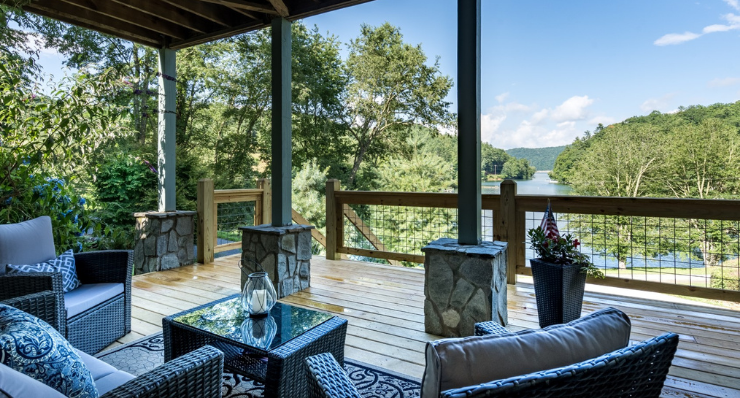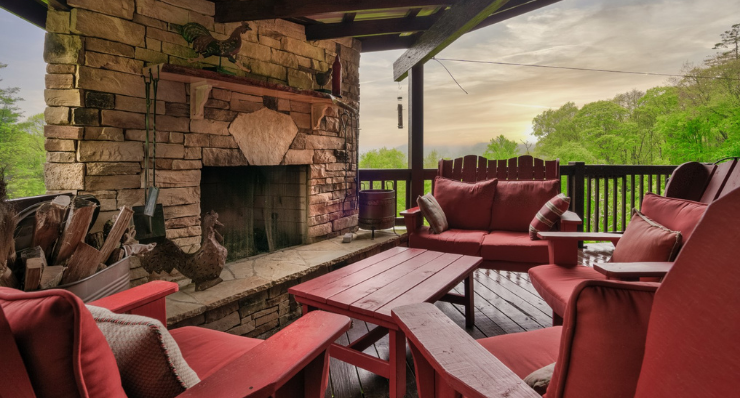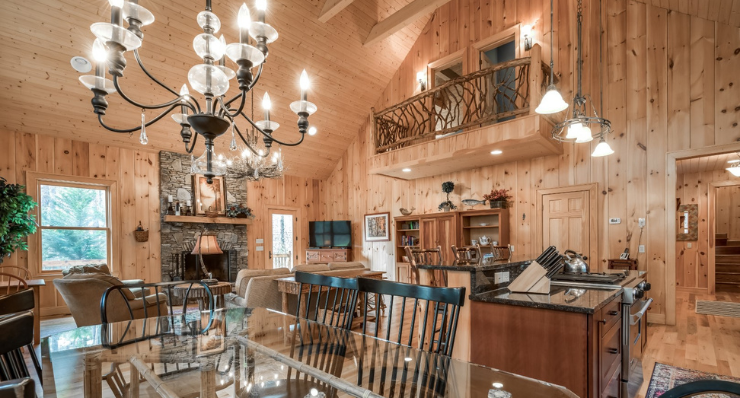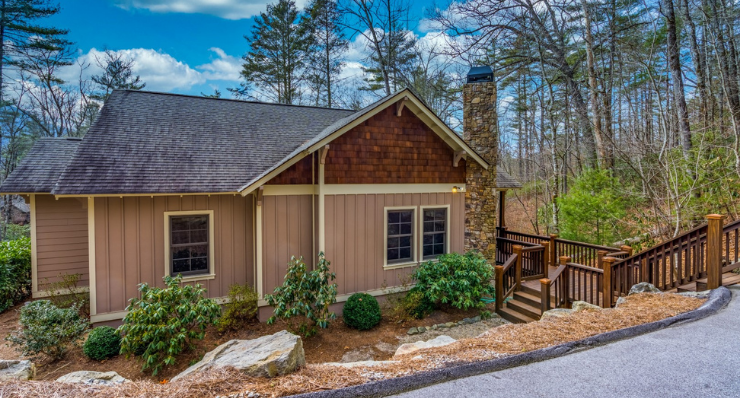
The plan to buy a second home is typically based on a variety of unique reasons. In some cases, the purchase is a long-held dream while other buyers crunch the numbers and determine it makes more sense financially to purchase what is considered a vacation home.
During the past two years, real estate markets across the county have experienced the increasing trend of buyers looking to purchase second homes in favorite vacation destinations. The Internal Revenue considers a second home as property occupied by the owner for about two weeks annually or reserved for personal use on average 10% of the time open to generate rental income.
While there may be a list of similarities for purchasing a primary residence, different rules may apply when it relates to buying a second home. Before signing on the dotted line, make sure you know exactly what is involved with each step of the process.

Is it smart to buy a second home?
It is a smart move to buy a second home for many buyers, especially if the property is located in an area they frequently visit throughout the year. The purchase is cost-effective compared to the expense associated with rental accommodations.
Realizing the benefits of owning a house in your preferred vacation destination comes with the comfort of knowing this is your personalized environment, everything is already there as you left it; you are just going home.
A great take away to owning a second home is the access the entire family can enjoy together for an annual gathering or during other times of the year in smaller groups for a mini-vacation or a weekend-get-away. In most cases, owning the property means more frequent visits to the area as a respite from the day-to-day stress without worrying about scheduling complications or other issues.
How to buy a second home?
There are several things at play when considering the purchase of a second home. The buyer needs to determine how the second home will be used; as a vacation home or as an investment property. Each type of house comes with a set of rules and regulations about how the mortgage is handled if needed, other aspects of the purchase and with the tax implications. Figuring out what type of homeowners’ insurance is required will be a big question to answer.
Location - Choose a location at least 50 to 100 miles from your primary residence so it is considered a second home and not as an investment property which impacts taxes.
Amenities - make sure to have access to other activities in the area; so if this is the top ski destination for the family, the group will also enjoy the area in the off-season too.
Costs - running a second home can be a budget buster if major maintenance is needed. Property owners should also factor in travel expenses to the destination and figure out if it is sustainable.
Since surroundings play a huge role in influencing the decision of purchase, look for the home to be in an established area rather than one that is on a development fast-track. As a homeowner, the noise associated with building and construction zones may be unwanted and can diminish the serene atmosphere that most desire on vacation.
When to buy a second home?
A good rule of thumb about when to purchase a second home, especially for use as a vacation home, is when a particular destination becomes the go-to spot for frequent vacations or get-a-ways. When that happens, most brokers will say it’s time to consider purchasing a property.
If it’s a seasonal destination, plan to purchase during the off-season when things are a bit relaxed and the bidding war between potential buyers is less intense. The off-season approach may yield a better price and other concessions. Visiting during the off-season also gives buyers a glimpse of the area to discover other aspects of the region and have something to look forward to on future trips.

Is it harder to buy a second home?
Generally, it is not any more difficult to purchase a second home as it is when buying a primary residence. Especially in today’s real estate market, buyers tend to be less emotional about the process as they likely were as first-time homebuyers.
As mortgage rates have dipped in recent years to historic lows, buyers are hopeful to capitalize on the moment to purchase a second home to utilize as a vacation property. Yet others plan to use the additional home as an investment property for the increasing vacation rental market.
Are mortgage rates higher for second homes?
Yes, in some cases the rates for a second home are higher since the lender knows it’s an additional house, not a primary residence therefore it will be considered a luxury or investment property.
The thinking here is that a higher interest rate matches the risk since owners will typically opt out of a second home and sell the property if their financial situation changes or the market drops. In short, a homeowner will save their primary home versus a second home, especially if the house is in a vacation hotspot where it can likely be sold quickly.
While mortgage rates are relatively even across the board, real estate professionals say things are still good in the current economy.
How much do you need to put down on a second home?
Although it depends on the terms of a loan, based on variable situations, a down payment can range between 3% to 25% on a second home. Buyers should also have enough to cover closing costs.
A reminder for property owners if purchasing the home 50-100 miles away from a primary residence, it is considered a second home sometimes carrying a lower mortgage interest rate also results in a lower down payment. However, the tax will be factored differently, possibly at a higher rate. So this is where crunching the numbers is important in the decision to buy a second home.
However, if the property is under 50-100 miles from a primary residence, the second home will be considered an investment property and the buyer has to put more money down, typically15% to 20 % and the buyer may have to show how the investment will make money to pay for itself. As an example, income as a rental property when the owner is not using the home as a residence.
According to the 2021 Vacation Home Counties Report by the National Association of Realtors, 53% of vacation home sales were all-cash deals. Of the buyers making a down payment, most paid at least 20% to close the deal.
Can you have two mortgages at once?
In terms of mortgages, you can’t have too many as long as your financial situation can afford to carry the load. However, that does not mean all things will be simple in securing additional mortgages.
Challenges may include:
-
High-interest rates
-
More required as down payment
-
Working with multiple lenders
-
Proof of higher cash in reserve
And it goes without saying securing a second mortgage will require excellent credit, liquidity to make down payments and other related upfront costs.

What do you need to buy a second home?
In general, the documentation needed to buy a primary residence is the same list required to purchase a second home. Be sure to update information on a regular basis to ensure current and accurate information is readily available when needed.
It goes without saying that buyers need a good credit score and a good balance in their debt to income ratios to be approved for a mortgage.
Take a look at the following checklist and use it as a guide in preparing to purchase a second home.
Home Purchase Checklist:
-
Determine the budget – how much to spend on the purchase.
-
Add up the cost – the cost of ownership includes repairs, travel, taxes, property management and more.
-
Down payment – how much to put down upfront
-
Documentation – W2s, bank statements, tax returns
-
Contact a broker – a professional is needed to navigate the details
Areas like Macon County in western North Carolina, home to mountain destinations including Highlands and Franklin, rank in the top 1% of vacation home counties across the country according to NAR. Swain County, North Carolina – home to the southern rim of the Great Smoky Mountains National Park – tops the list of North Carolina destinations followed by Alleghany County for purchasing a vacation property.
Let’s Close The Deal On a Second Home
Purchasing a second home, whether earmarked for use as vacation headquarters for the owner or rented to others, is an exciting time, even with all the details that come up in the process.
Landmark Realty Group maintains an impressive portfolio of property in Western North Carolina to consider for a second home. Work closely with a broker who lives and works in the region. We specialize in North Carolina mountain real estate on the Highlands-Cashiers Plateau, and the surrounding areas of Lake Toxaway, Lake Glenville and Sapphire Valley.
Contact any of our Landmark real estate brokers to discover the great communities in the region, and choose from a condo/townhouse, featured estates or land.
Posted by Landmark Concierge on
Leave A Comment